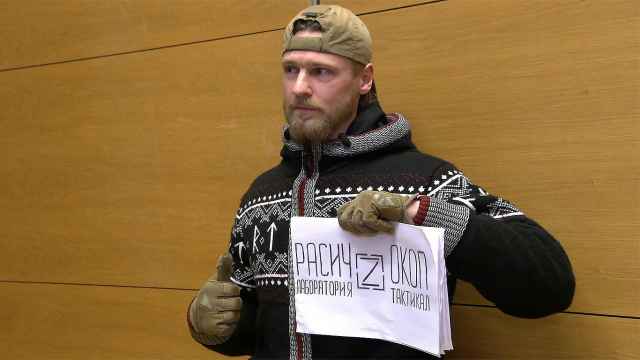The Central Bank's cleanup of the domestic banking sector should raise governance standards and dispose of nonviable banks but in the short-term may aggravate risks to depositor confidence, Fitch Ratings said Monday.
Russian banks on average have liquidity buffers sufficient to withstand deposit outflows of 20 percent, the ratings agency said, suggesting that they are well-placed to withstand pressure. Liquidity risks are also mitigated by the country's deposit insurance scheme, which covers up to 700,000 rubles ($21,250) per person, covering most retail deposits.
However, risks remain. After the withdrawal of licenses at Bank Pushkino and Master Bank for misconduct, a number of other mid-sized banks, including Smolensky, Project Finance and Solidarnost, experienced liquidity problems from a deposit run. This was despite the fact that Solidarnost held liquid assets — mostly cash — equal to 20 percent of customer deposits, based on the bank's accounts at the end of October, Fitch said. The Central Bank will have to react promptly to guarantee confidence if its shakeout is to continue, it added.
Another factor mitigating any anxiety about the fragility of the system is draft regulation set to increase its scrutiny of systemically important domestic banks, which should ensure a stable core to a sector that numbers about 900 banks.
Judging by official statements to alleviate potential concerns about the sufficiency of deposit insurance reserves — which are equal to only 1.2 percent of sector retail deposits — Fitch said it expected the cleanup to continue. Cementing this impression, the Central Bank has also recently been granted the right to lend to the Deposit Insurance Agency, bumping up its capacity to deal with bank closures.
A Message from The Moscow Times:
Dear readers,
We are facing unprecedented challenges. Russia's Prosecutor General's Office has designated The Moscow Times as an "undesirable" organization, criminalizing our work and putting our staff at risk of prosecution. This follows our earlier unjust labeling as a "foreign agent."
These actions are direct attempts to silence independent journalism in Russia. The authorities claim our work "discredits the decisions of the Russian leadership." We see things differently: we strive to provide accurate, unbiased reporting on Russia.
We, the journalists of The Moscow Times, refuse to be silenced. But to continue our work, we need your help.
Your support, no matter how small, makes a world of difference. If you can, please support us monthly starting from just $2. It's quick to set up, and every contribution makes a significant impact.
By supporting The Moscow Times, you're defending open, independent journalism in the face of repression. Thank you for standing with us.
Remind me later.





